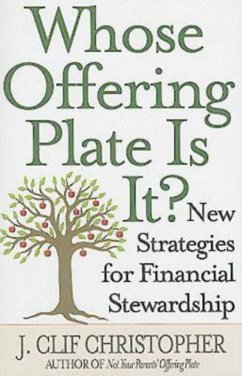This is the first Christian stewardship and finance book written from an explicitly anti-racist, decolonial, feminist, ecological, and class-critical standpoint. Many churches espouse these commitments--as individual members, as congregations, and through their denominations--but pursue them as discrete initiatives, such as themes for study and worship, rather than as core organizing principles for congregational life.
Alignment between Christian beliefs and commitments and church practice is both ethically and practically necessary, however. A 2009 Pew Research Center study that found that about half of those who had become unaffiliated from religion had done so because they found religious people "hypocritical, judgmental, or insincere." Alignment between beliefs and church practice therefore matters deeply both for those who are active in churches and for those who are not--but who might be if faith and action are consistent.
This book offers a positive and constructive approach to the topic and is filled with inspiring examples for churches of all sizes. Case studies provide practical guidance and make the analysis concrete, relatable, and accessible. The book highlights the importance of creativity, imagination, and a sense of hope-filled adventure in engaging this work.
Dieser Download kann aus rechtlichen Gründen nur mit Rechnungsadresse in A, B, BG, CY, CZ, D, DK, EW, E, FIN, F, GR, HR, H, IRL, I, LT, L, LR, M, NL, PL, P, R, S, SLO, SK ausgeliefert werden.









